Want to parse RDF Turtle file and save to Redshift? Want to schedule and automate this importing task?
Using FileToDB, a native GUI tool, you can import RDF Turtle file (.ttl, .n3) to Redshift easily and fast, and schedule and automate this importing task easily, no need to program, just a few mouse clicks!
Support Windows, Linux, macOS
For importing other RDF formats: RDF/XML(.rdf, .owl), N-Triples(.nt, .ntriples), N-Quads(.nq, .nq), JSON-LD(.jsonld).
Here you can download and install FileToDB.
Import RDF Turtle file (.ttl, .n3) to Redshift
Choose Redshift and logon.
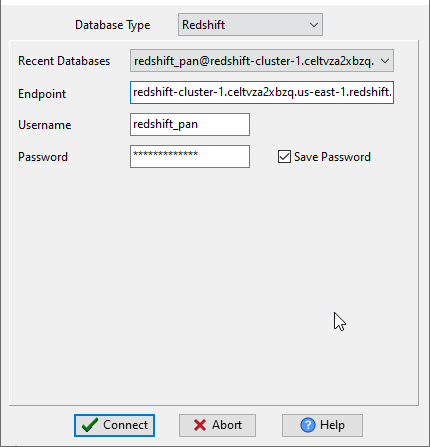
Click “Wizard – 1 File To 1 Table” at task dialog.
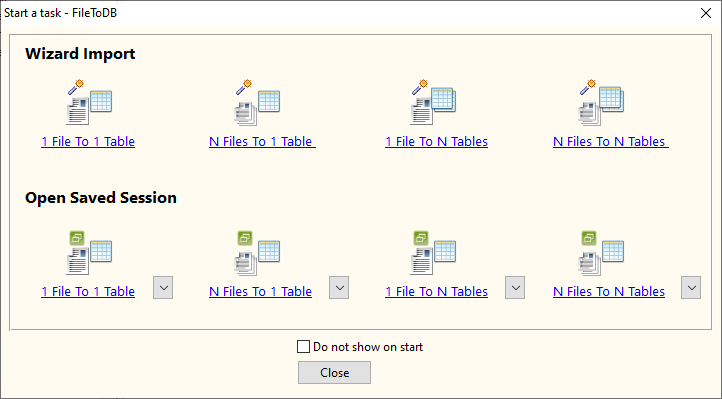
Select the “RDF” file type.
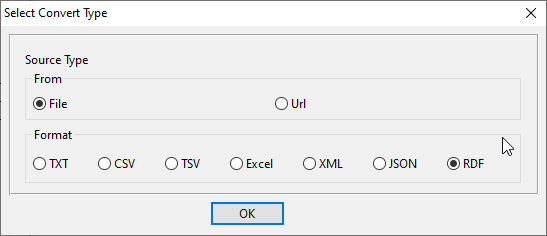
then show the wizard.
1. Open RDF Turtle file.
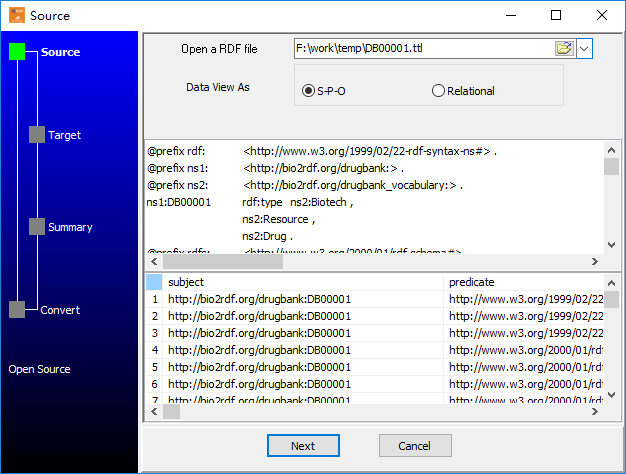
2. Select table and config fields.
You can create new Redshift table by RDF struct, just click 
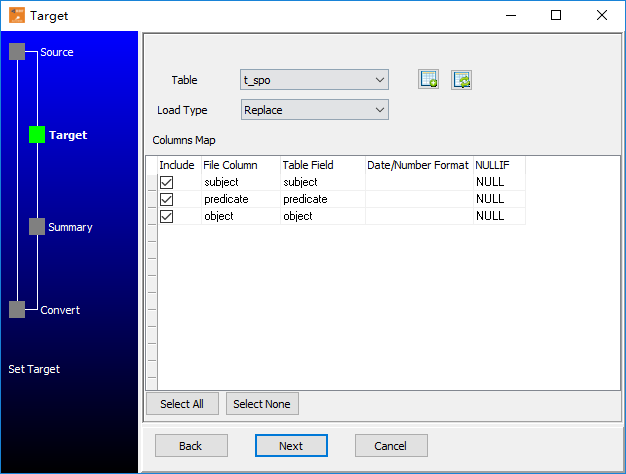
3. Summary.
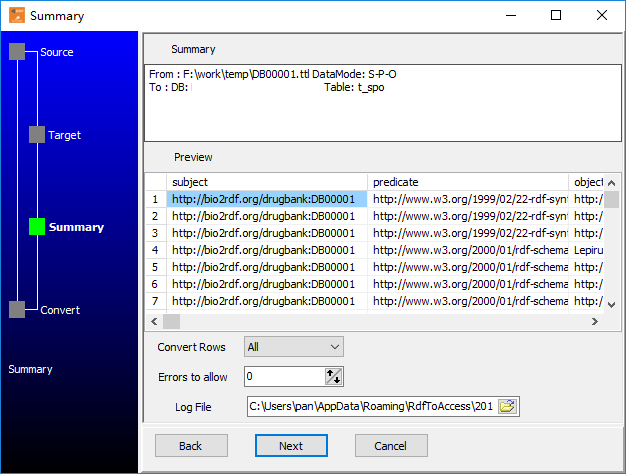
4. Import.
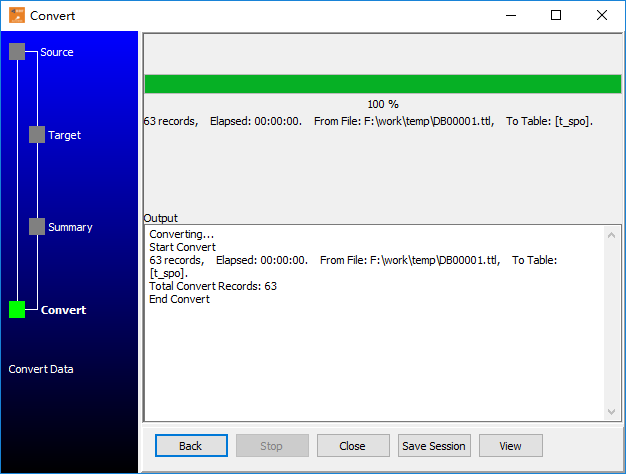
See importing results in Redshift table
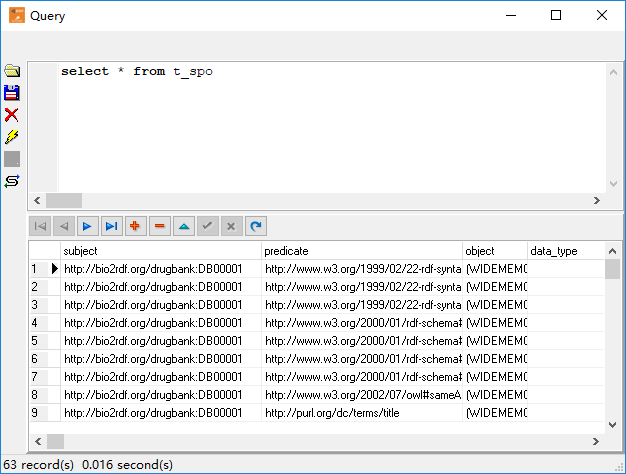
You can schedule and automate this importing task by:
1) Save session and create .bat file.
More about FileToDB – the tool to import RDF Turtle file (.ttl, .n3) to Redshift
